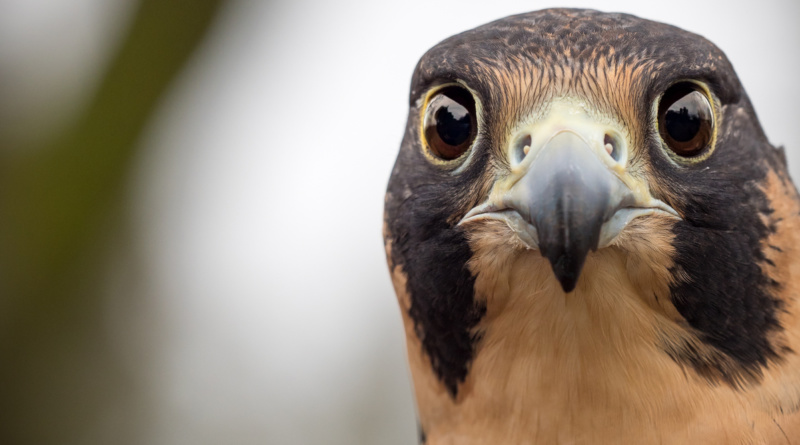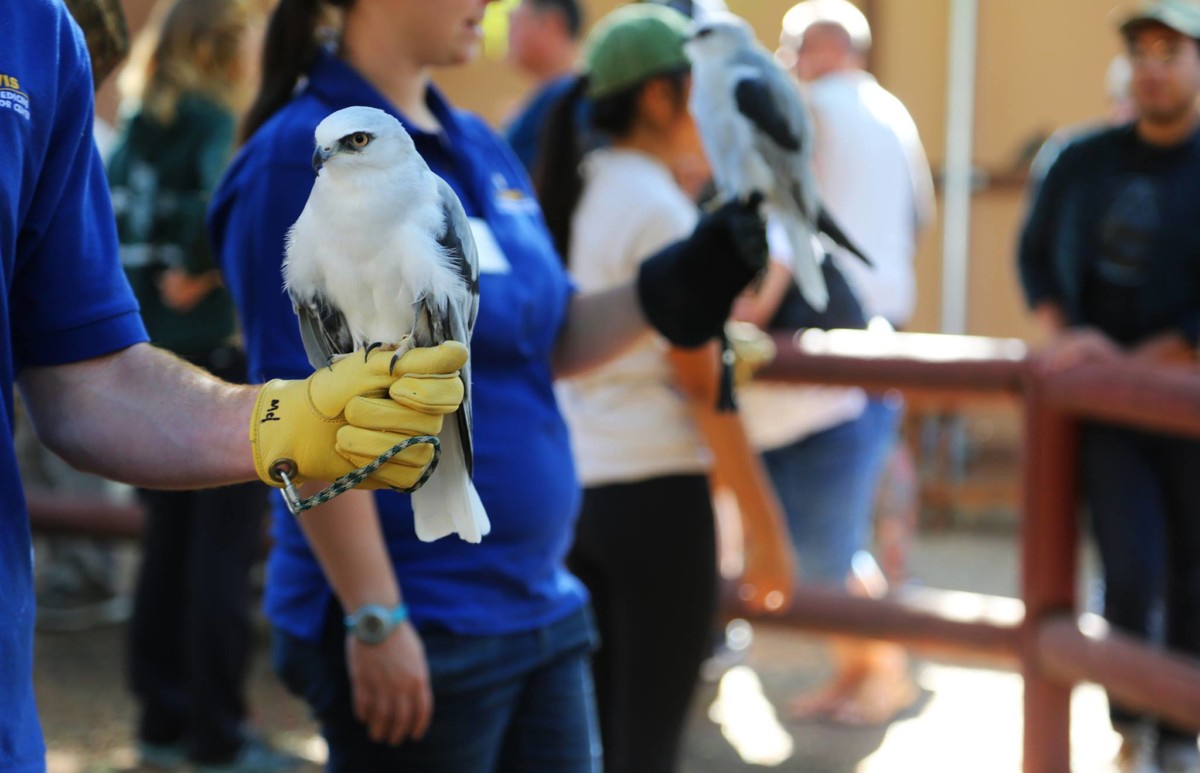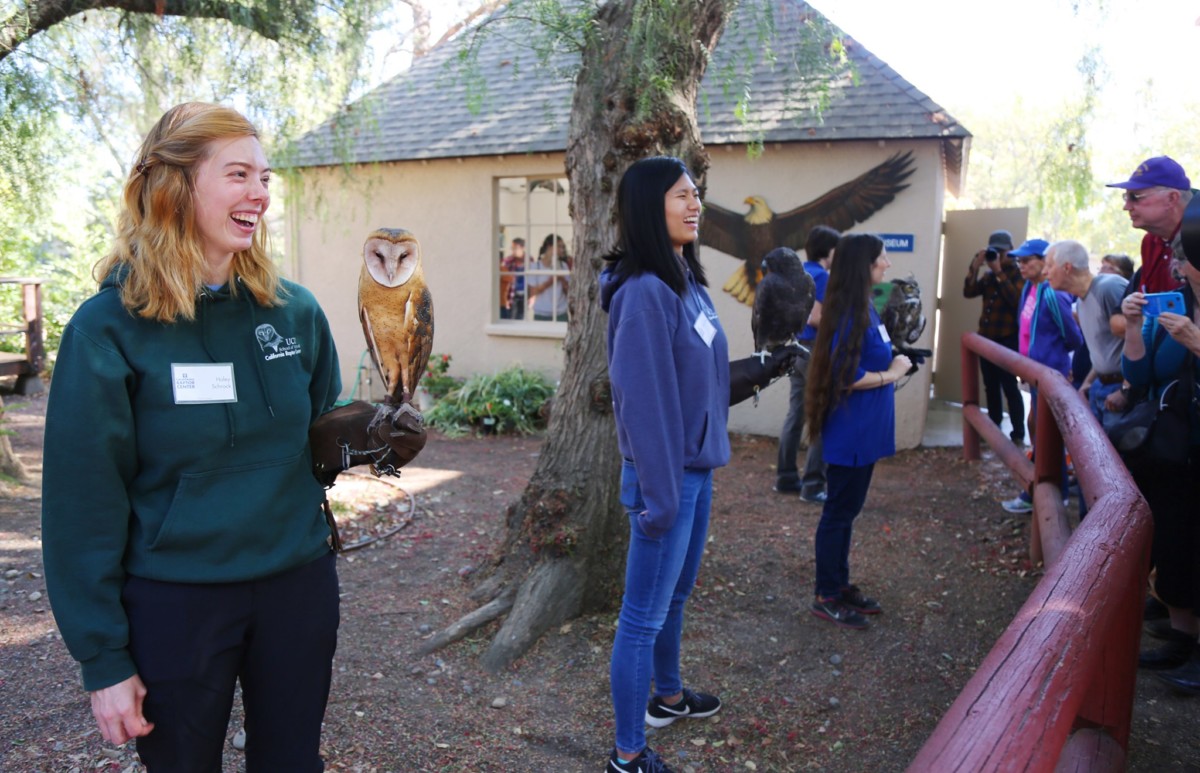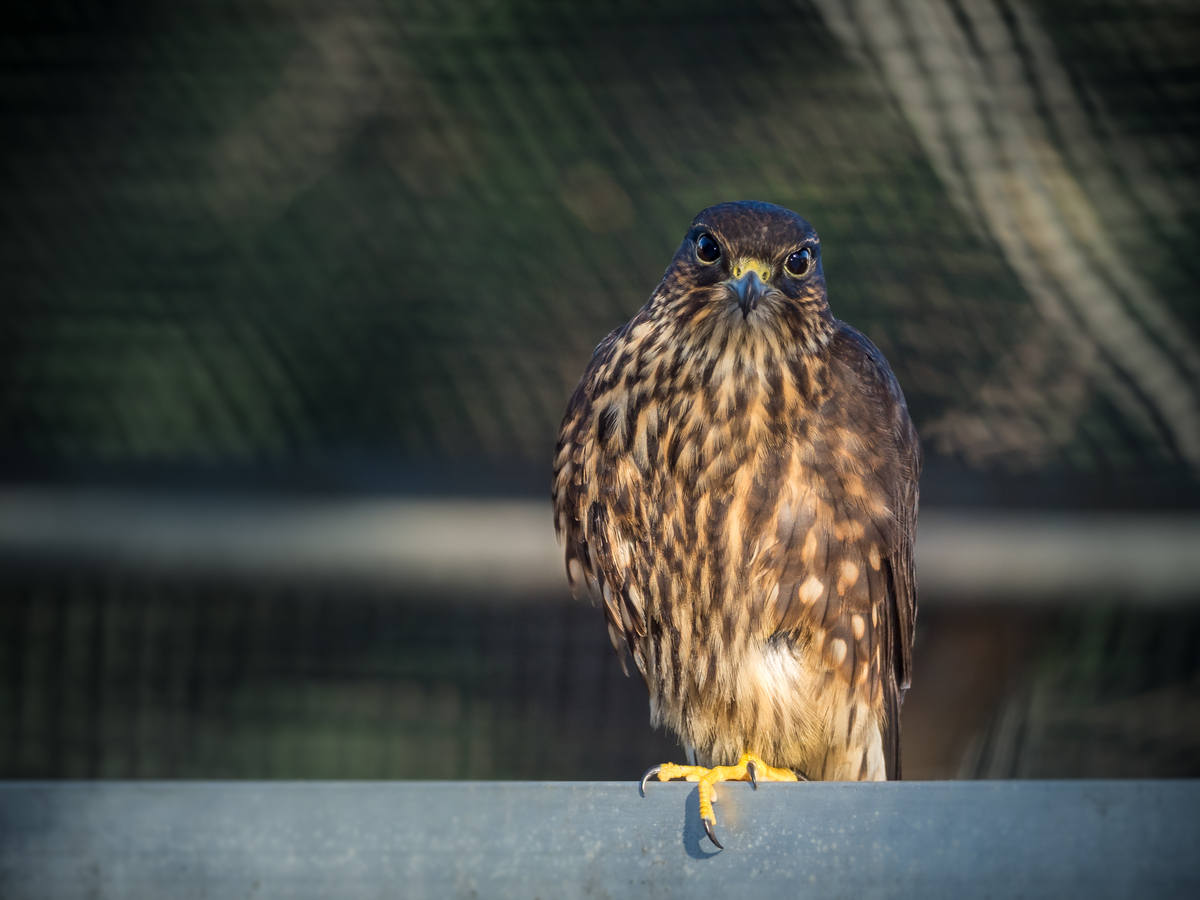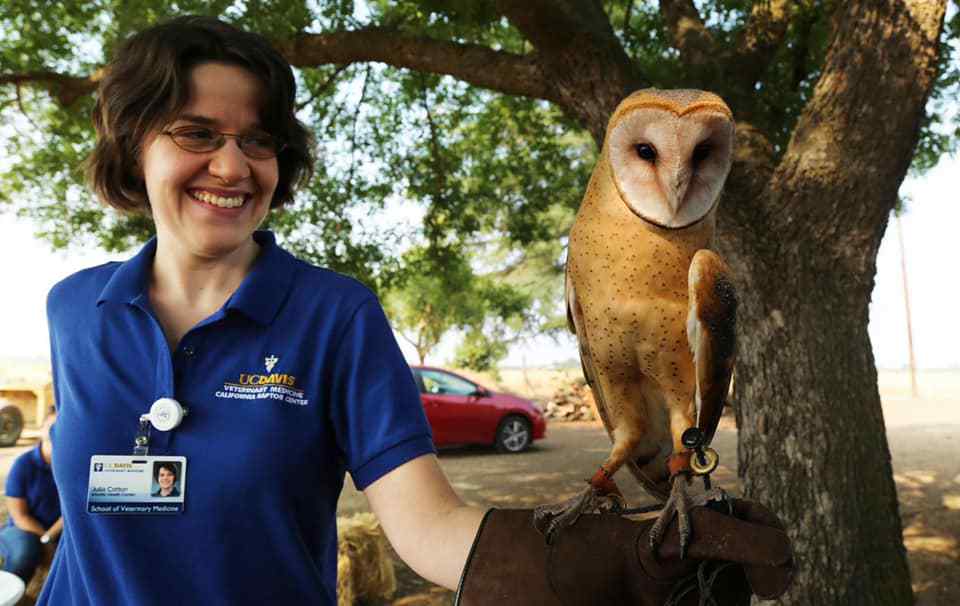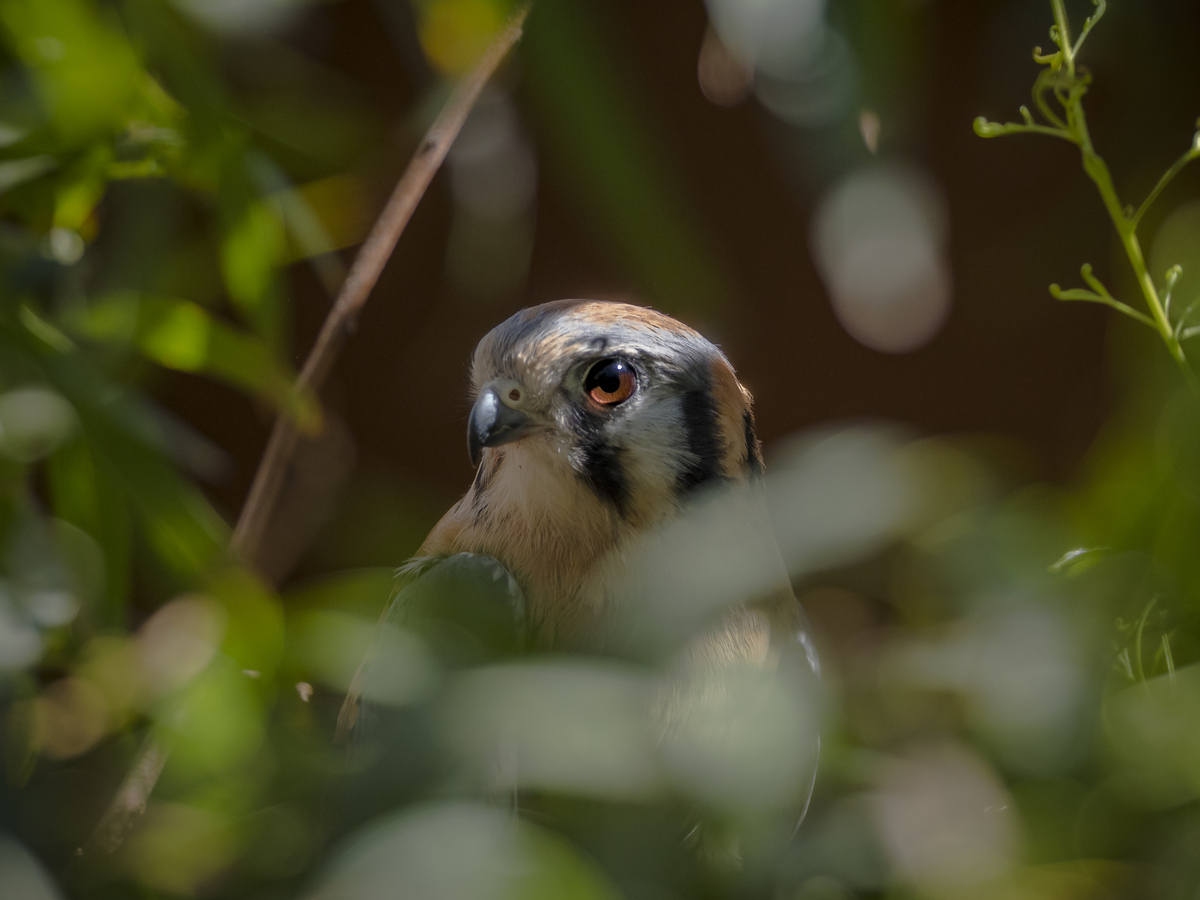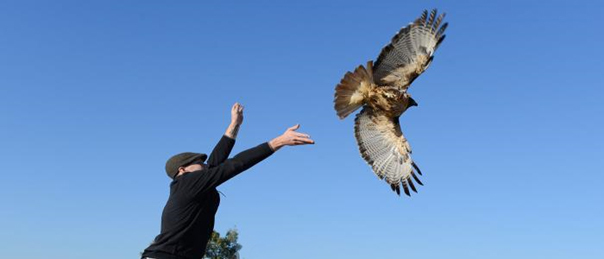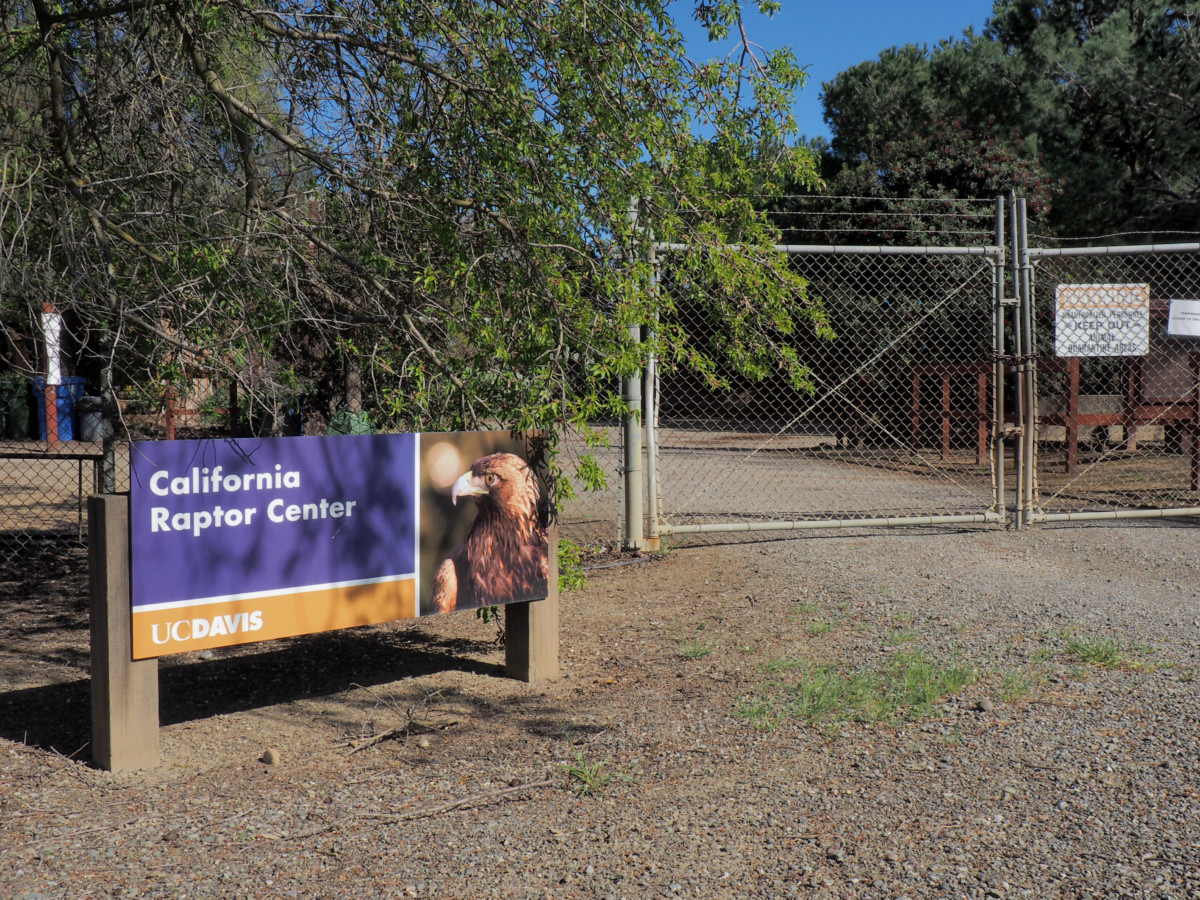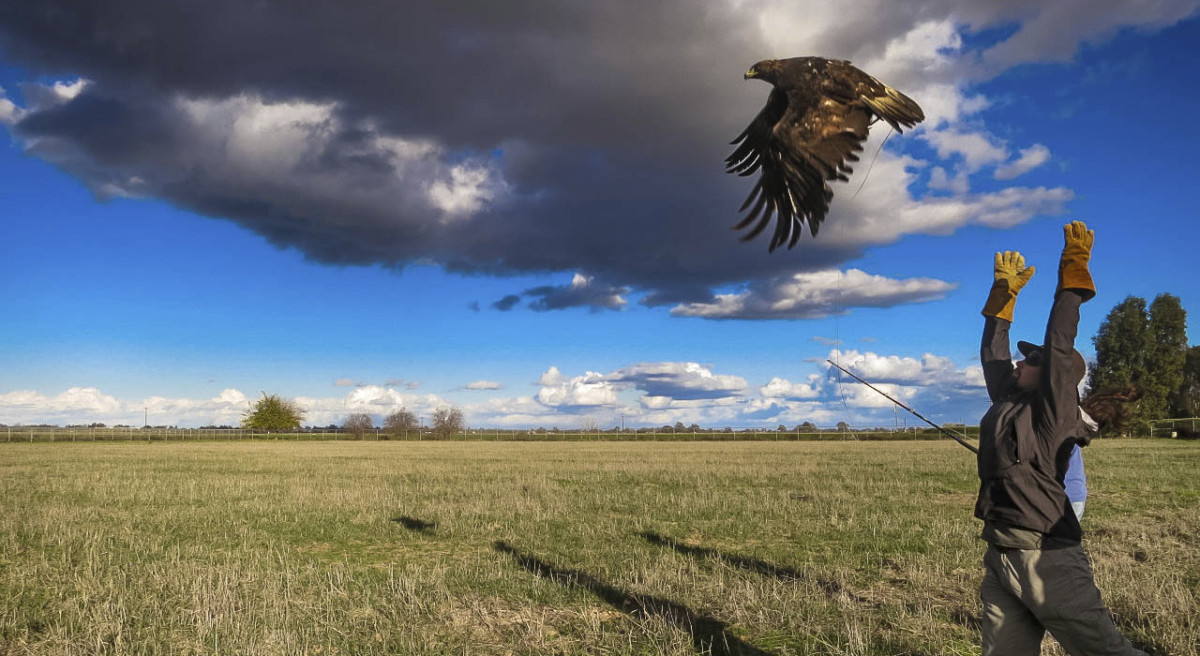California Raptor Center hosts virtual events as its facility stays closed
PHOTO: Peregrine Falcons are known for being the fastest birds on the planet, reaching speeds of up to 200 miles per hour. The resident Peregrine Falcon, Pheonix, is an ambassador bird who participates in virtual educational events hosted by the CRC.
By Mia Croff,
BlueDevilHUB.com Staff-
Located on the UC Davis Campus, the California Raptor Center (CRC) is a research and educational facility dedicated to the rehabilitation of orphaned, sick and injured birds of prey.
“Our mission is to protect and preserve the health of raptors, especially those native to California. Our facility’s main goals are rehabilitation of […] raptors, educating the public and conducting research to better the treatment of raptors,” said Julie Cotton, volunteer and outreach coordinator for the CRC.
In addition to the rehabilitation efforts made by the CRC, the facility also has a strong emphasis on educating the public about birds of prey. The facility hosts a variety of onsite and offsite education events with the help of their volunteers and ambassador raptors.
The popular attraction at the facility is an onsite, free walking tour that allows visitors to get within feet of 37 birds of prey, including Golden Eagles, American Kestrels, Barn Owls and many more.
“We want to educate the public about these birds as well as inspire a desire for conversion among them,” Cotton said.
However, the COVID-19 pandemic has completely turned the workings of the CRC facility upside down. Because the facility is part of the UC Davis campus, it has not been able to reopen since March of 2020, so all the programs it offers have been shut down. Additionally, the facility has also faced significant budget cuts in the last year.
“We have endured revenue cuts from canceling all our events in 2020 and the effects of the statewide budget cuts from the university. We are definitely working hard to find ways to raise up money after the loss in 2020,” Cotton said.
In order to earn some revenue, the CRC has begun hosting several virtual events a week, ranging from 15 to 45 minutes, where participants can see and learn about the raptors on Zoom. A list of virtual events, prices and descriptions can be found on their website.
Fiscal and material donations are needed and much appreciated by the center at the moment. You can donate online by visiting the CRC website and clicking on the ‘How You Can Help’ tab. From there, you can give a fiscal donation online or browse a wish list of material goods needed by the facility.
Although closed to the public as of now, the facility has high hopes to reopen during the late spring or summer.
“As soon as we are given the green light, we are back in business,” Cotton said. “We are just waiting for the approval of the university.”
Despite being shut down momentarily, CRC volunteers are still completing a weekly four hour shift to help as much as possible.
“[We] could not do what we do without volunteers,” Cotton said. “[The CRC is a] very small organization in terms of staff and the volunteers are the ones who do the bulk of the work.”
Joleen Crushing, a CRC volunteer and 40 raptor volunteering veteran, is glad to be helping the organization during these adverse times, and doing the basics is everything.
“I pretty much have the same responsibilities as all the volunteers: cleaning, feeding, doing any medications that are due on my shift and feeding babies during baby season,” Crushing said.
The CRC accepts new volunteers every quarter. However, spots are limited because of the large number of dedicated, long-time volunteers. If you are interested in becoming a volunteer, now is the ideal time to get into contact and voice your interest. You can find more details and contact information under the ‘How You Can Help’ tab on the CRC website.
“Anyone who is interested and passionate about animals, nature, or wildlife rehabilitation and wants to work closely with birds of prey should check out the CRC, as long as they are willing to get dirty!,” CRC bird trainer and volunteer Ryane Logsdon said.
As a reminder to all, the start of the “baby season” is fast approaching with spring. So, if you come across a baby bird or any bird of prey, contact the CRC or the appropriate wildlife authorities. Don’t try to take it in as a pet or raise it.

